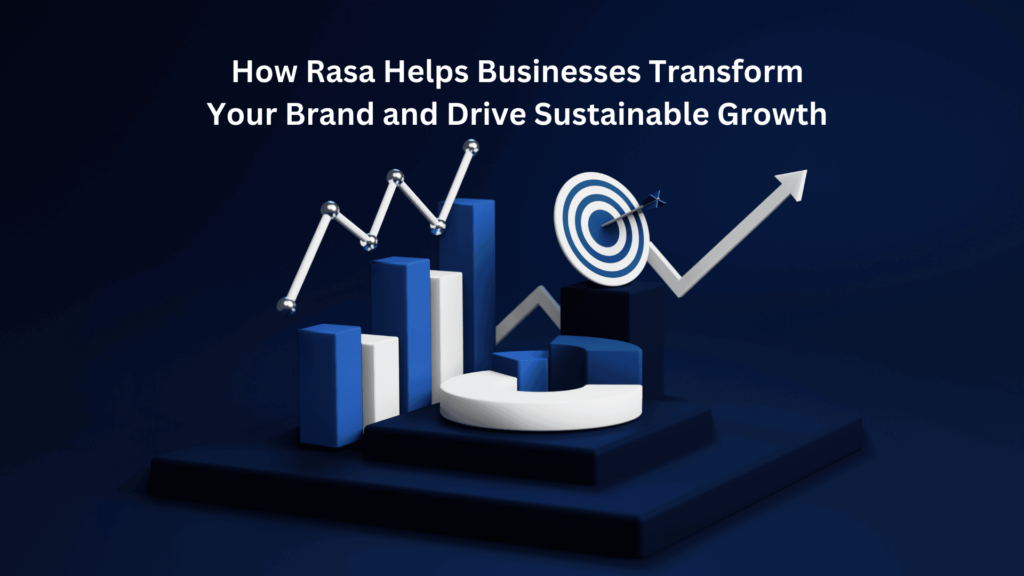Have you ever wondered why some companies manage to stay on top, no matter how the market changes? In many cases, it’s because they know how to use technology to make smart business decisions. This connection between business and technology is at the heart of Business Computer Information Systems (BCIS). BCIS is about much more than code or machines. It’s about how we can apply technology to real business problems so companies can grow, improve, and stay ahead of the competition.
Picture a busy office environment where data flows in and out every second: emails, customer orders, financial transactions, and performance reports. Without a good system to handle and make sense of this data, the company might lose track of sales or miss great growth opportunities. BCIS professionals work hard to design and manage the technology that makes all these tasks easier. They ensure that the right information goes to the right people at the right time.
In this blog post, we’ll explore the many parts of BCIS: the key skills you need, the different jobs available, and the future trends shaping this field. You’ll see how BCIS combines business ideas with technology in unique ways, making it one of the most exciting areas to pursue. If you’re wondering whether BCIS might be right for you, or if you’re just curious about how businesses use technology, keep reading. By the end, you should have a solid grasp of what BCIS is and why it’s so valuable in today’s business landscape.

1. Defining BCIS: Bridging the Gap Between Business and Technology
Business Computer Information Systems (BCIS) stands at a crossroads: it connects technology with business goals. To understand BCIS, you have to see it as a mix of several worlds: management, strategy, computer science, information technology, and even human behavior. The overall aim is to use computers and data to help solve business challenges. Whether it’s automating tasks, organizing large amounts of data, or using analytics to guide decision-making, BCIS provides the framework.
A Simple Example of BCIS in Action
Imagine you own a small online store. You need a way to keep track of your inventory, handle payments, manage shipments, and process returns. You also want to know which products sell the most, so you can stock up on them. A BCIS professional could set up a system that does all of these tasks automatically. This system might:
- Monitor when a product is running low on stock and send you an alert.
- Collect sales data so you can see which items are most popular.
- Organize customer details for easy follow-up or support.
This way, instead of juggling spreadsheets and guessing what’s happening, you have clear data to guide every decision. This is the essence of BCIS: using technology solutions to make the business run more smoothly and profitably.
How BCIS Differs From Simple IT Support
Sometimes people confuse BCIS with “just fixing computers” or helping users reset passwords. While that’s part of IT support, BCIS goes further. It involves understanding the bigger goals of a company—like growing sales or entering new markets—and then figuring out how technology can help meet those goals. BCIS professionals look at problems and see how software, hardware, databases, and networks can be put together to create a solution. They might work with programmers or other IT staff, but their approach always involves both business knowledge and technological insight.
BCIS as a Bridge
One major role of BCIS professionals is that of a bridge or translator between different teams. Many times, business leaders don’t speak the same technical language as software developers. A BCIS expert can sit with business leaders, understand what they want, and then explain it clearly to technical teams. They can also go back to management and translate technical details into simple, business-friendly language. This ability to move between technology and business makes BCIS professionals essential in modern organizations.

2. The Evolving Role of Information Systems in Business
Information systems have grown in importance over the years. Decades ago, companies used mainframe computers mainly to store data and do basic calculations, like accounting or payroll. These older systems were often expensive and not very flexible. As technology advanced, companies began to adopt personal computers, then networks, and eventually the internet. Today, nearly every business—big or small—depends on information systems for day-to-day tasks.
Early Days: Data Processing and Basic Automation
In the early stages, information systems helped companies save time by automating tasks that were once done by hand. For instance, payroll systems could calculate salaries and print checks much faster than an entire department of clerks. This saved money and allowed staff to focus on tasks that required human judgment, like handling customer complaints or creating marketing campaigns.
Rise of the Internet and E-Commerce
When the internet became widely available, businesses started to rely on websites to reach new customers. E-commerce made it possible for a small store to sell to people all over the country—or even the world. This shift introduced new challenges, like how to handle online payments securely or how to manage orders from distant locations. BCIS professionals tackled these issues by building safe, efficient systems that combined user-friendly design with robust data processing.
Big Data, Cloud Computing, and Mobile Apps
Fast forward to today, and we have “big data,” which refers to the huge volumes of data companies gather from social media, transactions, website clicks, and more. With the rise of cloud computing, businesses can store data on remote servers rather than maintaining expensive hardware in their offices. At the same time, mobile apps let customers place orders or interact with companies from almost anywhere.
All these changes mean the role of information systems is no longer a back-office function. Instead, it’s at the center of strategic planning. Leaders want real-time data so they can make decisions quickly. They want analytics that tell them about customer trends, and they want systems that adapt easily to new technologies. BCIS professionals are the ones who make these demands a reality, designing systems that can grow as the company evolves.
Future Challenges for Information Systems
As technology continues to change, the role of BCIS will keep expanding. New fields like artificial intelligence, machine learning, and blockchain are becoming more common in many industries. This means businesses need even more advanced systems for data processing, security, and analysis. BCIS experts will remain vital in helping organizations figure out which technologies are worth adopting and how to implement them safely and effectively.
3. Key Skills for BCIS Professionals
If you’re interested in BCIS, you might wonder what skills you need. There is no single “correct” list, but there are some common areas that most BCIS professionals focus on. These areas span both technical knowledge and business insight, plus the people skills needed to communicate effectively.
3.1 Technical Skills
- Programming: You don’t have to be a master coder, but you should know at least one or two programming languages, like Java, Python, or C++. This helps you understand how software is built and maintained.
- Database Management: Knowing how to work with databases is crucial. This includes writing SQL queries, designing database structures, and ensuring data is stored securely.
- Cybersecurity: With cyberattacks on the rise, understanding basic security measures is now part of almost every BCIS role. This might involve learning how to spot threats, how to protect networks, and what to do if a breach occurs.
- Cloud Computing: Many companies now host their servers and data in the cloud using services like AWS, Azure, or Google Cloud. Knowing how to deploy and manage applications in the cloud is increasingly important.
3.2 Business Acumen
- Business Analysis: A BCIS professional often needs to talk to managers and other stakeholders about what they need from a technology system. Good analytical skills help you identify those needs and propose solutions.
- Project Management: Whether you’re rolling out a new software platform or upgrading an old one, you’ll likely be working in a project environment. Skills in scheduling, budgeting, and risk management can keep projects on track.
- Financial Analysis: Technology solutions cost money. You should be able to evaluate whether a project is financially worthwhile. This could involve simple cost-benefit analyses or more detailed return-on-investment (ROI) calculations.
3.3 Soft Skills
- Communication: You’ll be dealing with managers, developers, end-users, and possibly external clients. Clear communication keeps everyone aligned and reduces confusion.
- Problem-Solving: In BCIS, unexpected problems crop up all the time: a system might crash, or data might get corrupted. Being able to calmly troubleshoot and offer creative fixes is key.
- Teamwork: Information systems projects often involve many departments. Knowing how to coordinate efforts, share ideas, and handle conflict diplomatically makes the work smoother for everyone.
Balancing Skills: The BCIS Advantage
The magic of BCIS lies in having both technical and business know-how. Some people who start in IT learn business concepts over time, while others with business backgrounds pick up technical skills. Regardless of the route, the goal is the same: to be able to see problems from both a technical angle (how to implement a feature) and a business angle (why a feature helps the company). That dual perspective is what sets BCIS professionals apart.
4. BCIS Career Paths: A World of Opportunities
One of the most appealing aspects of BCIS is the variety of job titles and roles you can explore. Since almost every type of organization—from banks to hospitals, retail stores to government agencies—uses information systems, there’s no shortage of places to work. Below are some of the more common paths people take.
4.1 Entry-Level Roles
- Information Systems Analyst: In this role, you study a company’s processes and figure out where technology can make an impact. You often create documents that describe the requirements for new software or system updates.
- Data Analyst: If you like numbers and patterns, being a data analyst could be a great fit. You collect data, clean it up, and then use tools like Excel or specialized software to find trends that guide business decisions.
- Technical Support Specialist: This is where many people begin their career. You help end-users who are struggling with software, network, or hardware problems. You also keep track of issues to spot larger trends.
4.2 Mid-Level Roles
- IT Project Manager: Once you gain some experience, you might manage entire projects, from planning and budgeting to final delivery. You act as the link between the technical team and top management.
- Systems Analyst: Similar to an Information Systems Analyst, but often with a deeper focus on how different software and hardware components interact. You might design the overall architecture of systems.
- Database Administrator: If you enjoy working with data, you can specialize in keeping databases efficient, secure, and accessible. You might also design backup and recovery processes.
4.3 Specialized Roles
- Cybersecurity Analyst: As data breaches grow more frequent, cybersecurity professionals are in high demand. In this role, you protect systems from attacks, monitor for suspicious activities, and respond when something goes wrong.
- Blockchain Developer: For companies experimenting with blockchain technology for secure transactions or record-keeping, specialized developers are needed to build and maintain those systems.
- Data Scientist: A step beyond data analysis, data scientists use statistical models, programming, and machine learning to derive deeper insights. This role often requires strong math skills and programming knowledge.
4.4 Leadership Roles
- Chief Information Officer (CIO): A CIO manages the entire IT strategy. They decide what investments to make in technology and lead large teams of IT professionals.
- Chief Technology Officer (CTO): A CTO focuses more on the technical vision of the company, guiding innovation and making sure the organization uses the right tools to stay competitive.
- Director of Information Security: This leader oversees all security-related functions, ensuring that the company’s data is protected from threats.
- Head of Digital Transformation: With many organizations moving online, this role involves planning how the company can use digital tools to improve everything from internal processes to customer engagement.
4.5 Entrepreneurial Opportunities
Many BCIS professionals choose to create their own businesses or become consultants. Because they understand both tech and business, they can spot gaps in the market and build solutions to fill them. Starting a small firm that specializes in, say, creating custom software for local businesses, or offering cybersecurity evaluations, can be a lucrative path. Having a BCIS background provides a strong foundation for thinking creatively about technology in a business context.

5. The Future of BCIS: Emerging Trends and Opportunities
Technology never stands still, and BCIS is no exception. As the world becomes more connected and data-driven, BCIS professionals will face new challenges but also new opportunities. Some of the trends to watch include:
5.1 Artificial Intelligence (AI) and Machine Learning (ML)
AI and ML are revolutionizing how businesses operate. These technologies can automate customer service with chatbots, detect fraud in financial transactions, or make personalized product recommendations. BCIS professionals with a background in AI or ML can help companies integrate these technologies into their existing systems. They might design data pipelines so that AI models always have updated information, or they could evaluate the best machine learning frameworks for a particular project.
5.2 Cybersecurity
Every year, cyber threats become more advanced. Hackers try new techniques, from phishing scams to ransomware attacks. At the same time, companies store more and more sensitive data online. This creates a high demand for security experts who understand both the technical side (firewalls, encryption, etc.) and the business side (risk management, compliance, etc.). Cybersecurity roles will likely keep growing as companies do more business online.
5.3 Cloud Computing
Cloud services, such as Amazon Web Services (AWS) or Microsoft Azure, let companies rent computer power and data storage instead of buying their own servers. This approach is flexible: a company can quickly scale up (or down) based on current needs, which is especially useful for fast-growing businesses. BCIS professionals often manage cloud migrations, ensuring that applications run smoothly in the new environment and that data remains secure.
5.4 Data Analytics and Business Intelligence
Data is sometimes called “the new oil.” Companies collect massive amounts of data from social media, web clicks, emails, and internal processes. Without proper analysis, this data is just a mess of numbers and text. But with analytics tools, that data can reveal which marketing campaigns work best, which employees need more training, or which product line is most profitable. As more businesses seek a data-driven culture, skilled BCIS professionals who can build and manage analytics platforms will find plenty of job openings.
5.5 Blockchain Technology
Blockchain started as the technology behind Bitcoin, but it’s expanded into many sectors, from supply chain to health care. It offers a tamper-proof way to track transactions or records. Some companies believe blockchain can reduce fraud and administrative costs. BCIS experts who learn how to develop or implement blockchain solutions could pioneer innovative applications, such as tracking goods from factories to store shelves or creating secure digital contracts.
5.6 Internet of Things (IoT)
IoT refers to connecting everyday devices—like thermostats, security cameras, or even refrigerators—to the internet. In an industrial setting, IoT devices monitor machinery or track inventory levels in real time. This data can alert managers to potential issues before they become big problems, saving money on repairs and downtime. For BCIS professionals, IoT adds another layer to manage, requiring an understanding of networks, data analytics, and security considerations.

6. The Importance of Continuous Learning in BCIS
Because technology changes so quickly, BCIS professionals need to keep learning. If you stop updating your knowledge, you risk falling behind, especially when new tools or programming languages emerge. Continuous learning can take many forms:
- Certifications: Organizations like CompTIA, Cisco, or Microsoft offer certificates that prove your skills in specific areas, whether it’s networking or cloud administration.
- Online Courses: Platforms like Coursera, Udemy, or edX let you learn new skills on your own schedule. Many courses are taught by industry experts.
- Workshops and Conferences: Attending in-person events can help you stay updated on trends, meet like-minded professionals, and even find mentors.
- Reading and Research: Subscribing to tech news sites, blogs, and academic journals helps you follow the latest discoveries and breakthroughs.
Learning Soft Skills as Well
Continuous learning in BCIS isn’t only about technology. The business landscape also shifts, with changing consumer preferences, new regulations, or shifts in the global economy. As a BCIS professional, you should learn about these trends so you can advise your organization effectively. You might also want to improve your leadership and communication skills, especially if you plan to manage teams or interface with high-level executives.
The Mindset of a Lifelong Learner
Ultimately, success in BCIS requires a mindset of curiosity. If you enjoy exploring how things work, testing new applications, and solving problems, this field will offer endless opportunities. You don’t have to master everything, but you do need a willingness to adapt. Over time, you’ll develop a pattern of learning that might include daily reading, weekly experimentation with new software, or monthly professional meetups.
7. Choosing the Right BCIS Program
If you’ve decided to pursue a formal education in BCIS, you may be looking at various universities or technical schools. Not all programs are the same, so it’s important to pick one that fits your goals and interests.
7.1 Curriculum Mix
A good BCIS program should include both business and technology courses. On the business side, you might take classes in management, accounting, marketing, and finance. On the technology side, you’ll likely learn programming, database management, system analysis, and cybersecurity basics. The best programs tie these topics together with projects or case studies, so you can see how business and IT align in the real world.
7.2 Hands-On Experience
Look for programs that let you practice what you learn. This might mean internships at local companies or group projects where you solve an actual business problem. Hands-on experience is valuable because employers often want to see that you can apply concepts in real situations, not just memorize theories.
7.3 Networking and Industry Connections
Some schools have strong connections with businesses, offering regular job fairs or guest lectures by industry leaders. These events can be a great way to meet future employers. A program with good industry ties might also have more internship options or co-op arrangements, where you can work for a company as part of your studies.
7.4 Faculty Expertise
Teachers with real-world experience can give you insights that aren’t always found in textbooks. Look up the backgrounds of the professors who teach BCIS courses. Have they worked in large corporations, run startups, or consulted for different clients? Their firsthand knowledge can make your education more practical and engaging.
7.5 Online vs. On-Campus
In today’s environment, many programs offer online or hybrid formats. Online courses can provide flexibility if you’re already working, while on-campus programs might offer more face-to-face networking. Think about your lifestyle and learning style when deciding which format suits you best.

8. The Rewards of a BCIS Career
Why choose BCIS over other tech or business fields? Many people find BCIS appealing because it offers both a stable and dynamic career path. Let’s look at a few rewards you can expect.
8.1 High Demand and Job Security
Companies in nearly every industry want professionals who know how to merge technology with business strategy. As a result, BCIS graduates often find themselves in high demand. This demand can translate into job security, competitive salaries, and opportunities for career growth.
8.2 Meaningful Impact
BCIS roles often give you a chance to improve how a company operates, whether you’re reducing costs, speeding up processes, or enhancing customer satisfaction. Knowing that your work makes a tangible difference can be very fulfilling. It’s not just about technology for technology’s sake; it’s about real, positive change for the business and often for its customers.
8.3 Continuous Learning and Variety
If you enjoy learning, BCIS will keep you busy. You might be implementing a new system this year and exploring machine learning next year. The scope is broad, so you’re less likely to get bored. Whether you prefer diving into code, leading projects, or analyzing data, there’s a role for you in BCIS.
8.4 Transferable Skills
Because BCIS involves both business and technical skills, you gain abilities that can carry over to other fields. You might start in a tech role at a retail company and end up leading a digital transformation project at a healthcare firm. Your problem-solving approaches and communication style will be assets in any industry.
8.5 Entrepreneurial Potential
If you ever want to start your own business, a BCIS background is a great advantage. You’ll understand how to set up efficient systems and how to scale your technology as your startup grows. Plus, you’ll have insights into what kinds of IT solutions smaller businesses might need, opening the door to consulting or product development.
9. BIS vs. CS: How Do They Differ?
Before we wrap up, let’s address a common question: How does a Business Information Systems (BIS) degree differ from a Computer Science (CS) degree? While both deal with technology, each program has its own focus and outcomes.
9.1 Focus
- BIS (or BCIS): Concentrates on applying technology to solve business problems. This means more emphasis on how information systems can improve efficiency, profitability, and customer service.
- CS: Dives deeper into the theoretical side of computing. It focuses on algorithms, programming languages, and the underlying principles of how computers work.
9.2 Curriculum
- BIS/BCIS: You’ll often study core business courses (management, finance, marketing) along with tech-related classes (database management, project management, cybersecurity). Programming courses are included, but the main goal is to see how tech can support business activities.
- CS: Involves more math and theory. You’ll likely take multiple programming courses, study data structures, algorithms, and possibly specialized areas like artificial intelligence or game development.
9.3 Career Paths
- BIS/BCIS: Graduates often become business analysts, IT project managers, systems analysts, or IT consultants. They bridge the gap between tech teams and business stakeholders.
- CS: Graduates usually become software developers, system engineers, or data scientists. They build and maintain software systems and focus on coding and computational tasks.
9.4 Skills Emphasized
- BIS/BCIS: Strong soft skills, communication, teamwork, and business analysis. You’ll learn to present technical concepts to non-technical people.
- CS: Strong focus on coding, algorithm design, and complex problem-solving from a computing perspective.
9.5 Earning Potential and Switching Fields
Both fields can lead to good salaries, though the specific amount depends on the role and the industry. Sometimes CS graduates move into more business-focused roles by learning soft skills and business processes, while BIS graduates can learn more coding to transition into heavier software development roles.

10. Putting It All Together: Embracing the Power of BCIS
So, what’s the big takeaway? BCIS is a field that combines technology and business in ways that are crucial for modern companies. It’s about more than just writing code or configuring networks. It’s about understanding the heartbeat of an organization—its goals, challenges, and workflows—and then designing systems that help the company succeed.
Looking at a Typical BCIS Project
Let’s illustrate with a brief scenario: imagine a mid-sized manufacturing firm that struggles with inventory management. They often run out of materials, causing production delays, or they overstock items, wasting money. A BCIS professional might:
- Analyze the current workflow, talking to the warehouse, finance, and production teams.
- Identify data points such as order times, supplier lead times, and average consumption rates.
- Propose a new system that automatically tracks inventory levels and orders new materials when they reach a critical threshold.
- Implement the system, training staff on how to use it and ensuring it integrates with existing accounting software.
- Monitor outcomes, using dashboards to check if the system reduces out-of-stock incidents or lowers warehouse costs.
- Refine based on results, adjusting thresholds or adding extra alerts.
Through this project, you can see all aspects of BCIS at play: technical design, business analysis, project management, and ongoing improvement.
11. Conclusion: A Bright Future in BCIS
Business Computer Information Systems is a rich field that offers a balance of business insight and technical expertise. As companies continue to rely on data-driven strategies, skilled BCIS professionals will remain in high demand. Whether you’re drawn to cybersecurity, project management, data analytics, or emerging technologies like AI and blockchain, BCIS provides a solid platform for a long and rewarding career.
BCIS at a Glance
- Core idea: Align technology with business goals to solve problems and boost efficiency.
- Common roles: Systems Analyst, IT Project Manager, Database Administrator, Cybersecurity Analyst, Data Analyst, CIO, CTO, and more.
- Key skills: Programming basics, database management, cybersecurity, business analysis, communication, and teamwork.
- Future trends: AI, cloud computing, advanced analytics, IoT, and blockchain are reshaping how businesses use technology.
- Differences from CS: BCIS is more about applying technology to business settings, while CS leans toward theory, algorithms, and software development.
If you’re excited by the idea of helping companies work smarter with technology, then BCIS might be the perfect path. It offers a chance to use your creativity, problem-solving skills, and love for technology to make real improvements in how organizations function. The field moves quickly, but that also means there’s always something new to learn, a fresh challenge to tackle, and a chance to make a meaningful impact.
FAQ
Below are some frequently asked questions about BCIS. These questions highlight common points of confusion and curiosity for those exploring the field.
1. Is BCIS only for big companies, or can small businesses benefit too?
BCIS applies to organizations of all sizes. Small businesses also need better ways to manage data, handle customer information, or track inventory. BCIS solutions can be scaled to fit their budgets and needs.
2. Do I need strong math skills to succeed in BCIS?
Basic math skills are usually enough. While some advanced areas (like certain AI algorithms or data science tasks) might require more math, many BCIS roles focus on applying existing tools rather than creating new algorithms from scratch.
3. Can I get into BCIS without a formal degree?
Yes, many people enter BCIS through experience, certifications, or self-study. However, a formal degree can give you a more structured foundation and may open doors to larger companies that prefer degree qualifications.
4. How does BCIS relate to Data Science?
Data Science is more specialized in advanced analytics and modeling. BCIS has a broader scope, looking at all sorts of business problems and systems. Still, many BCIS roles involve data analysis, and some professionals later specialize in data science.
5. Is coding all day part of BCIS?
Not necessarily. Some roles might require coding, but many BCIS professionals focus more on planning, analysis, and overseeing technical projects rather than writing code all day. It depends on the job description and the organization.
6. How do I decide if BCIS or Computer Science is right for me?
Think about what interests you. If you love creating software, digging into algorithms, or building apps from scratch, CS might be more suitable. If you’re fascinated by how technology can solve business problems and want a mix of people-focused and technical work, BCIS is a strong option.
7. What industries hire BCIS professionals?
Almost every industry needs BCIS professionals. Retail, finance, healthcare, government, education, manufacturing, and more all require people who can align IT solutions with their unique needs and goals.
8. Will AI replace BCIS professionals?
AI can automate certain tasks, but it still needs human oversight. BCIS professionals design the systems, choose the right AI tools, and make sense of the results. So, it’s more of a partnership between people and machines, rather than a replacement.
9. Are internships important for BCIS students?
Internships can be very helpful. They give you hands-on experience, let you test your skills in a real work environment, and often lead to job offers. Employers also view internship experience favorably because it shows you can handle practical tasks.
10. What’s the best way to keep my BCIS skills current?
Stay curious. Read tech news, try new software tools, pursue certifications, and attend workshops. Continuous learning will help you adapt to emerging technologies like cloud platforms, cybersecurity threats, and AI applications.
Final Thoughts
Business Computer Information Systems is a field full of potential. It meets a critical need in today’s world: bridging the gap between complex technology and the goals of modern businesses. By mastering both business and technical concepts, BCIS professionals can make a difference in how companies operate, innovate, and grow.
From improving supply chains to safeguarding data from cyber threats, BCIS experts handle tasks that keep the business running smoothly. If you love solving problems, if you enjoy working with people, and if you’re excited by the promise of technology, BCIS might be the path that makes perfect sense for you. The journey can lead you to high-demand roles with rewarding challenges and the satisfaction of knowing your work helps organizations achieve their best results.
No matter if you aim to be a data analyst, a project manager, a cybersecurity specialist, or even a future CIO, the BCIS field has space for many types of talents and ambitions. So take the time to explore your options, hone your skills, and step confidently into a career that blends business insights with technological innovation. You’ll be joining a field that continues to shape how businesses operate—and how they succeed—in an ever-changing digital age.



